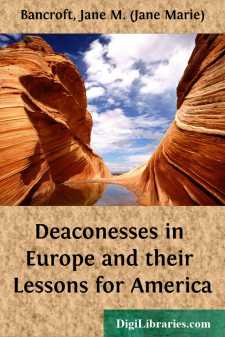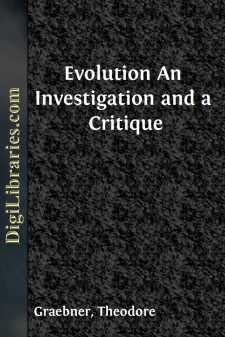Categories
- Antiques & Collectibles 13
- Architecture 36
- Art 48
- Bibles 22
- Biography & Autobiography 813
- Body, Mind & Spirit 142
- Business & Economics 28
- Children's Books 13
- Children's Fiction 10
- Computers 4
- Cooking 94
- Crafts & Hobbies 4
- Drama 346
- Education 46
- Family & Relationships 57
- Fiction 11828
- Games 19
- Gardening 17
- Health & Fitness 34
- History 1377
- House & Home 1
- Humor 147
- Juvenile Fiction 1873
- Juvenile Nonfiction 202
- Language Arts & Disciplines 88
- Law 16
- Literary Collections 686
- Literary Criticism 179
- Mathematics 13
- Medical 41
- Music 40
- Nature 179
- Non-Classifiable 1768
- Performing Arts 7
- Periodicals 1453
- Philosophy 64
- Photography 2
- Poetry 896
- Political Science 203
- Psychology 42
- Reference 154
- Religion 513
- Science 126
- Self-Help 84
- Social Science 81
- Sports & Recreation 34
- Study Aids 3
- Technology & Engineering 59
- Transportation 23
- Travel 463
- True Crime 29
Sort by:
by:
Various
A DAY AT THE BEACH. HERE are few of the little readers of "The Nursery" who could not tell of pleasant days spent among green fields and woods, or on the seashore. But in almost every large city, there are many children who have never been out of sight of brick walls.Their homes are in close rooms in narrow streets, and there they live from one year's end to the other. In winter they are...
more...
Chapter 1 A FORESHADOWING THE Patriarch of Alexandria, Egypt was expecting company. He stood at the window of his palace looking down the long road, that at the first sign of his guests' arrival he might go forth and welcome them. Before him, like a white pearl in the blue waters of the Mediterranean, lay the city of Alexandria—"the beautiful," as men loved to call it. Across the harbor...
more...
by:
Bruce S. Wright
HAPPY NEW YEAR Happy New Year, Juniors! The morning of the first day of every year we enter into a contest. We see who will be the first to give that day's greeting. Before I was awake this morning my boy ran into my room shouting, "Happy New Year! Happy New Year!" He won in the contest. Now, however, you are in Church and it is not proper for you to speak out loud, so I am able to get...
more...
INTRODUCTION. How far, and in what form, ought woman’s work in the Church to be organized? What was the deaconess of St. Paul’s epistles? What light on this subject do the primitive and the mediæval Churches yield us? Can “sisterhoods” be established without weakening the sense of personal responsibility in those Christian women who are not thus wholly set apart to charitable and spiritual...
more...
by:
Scott Nearing
I. THE NEW ECONOMIC LIFE 1. The Historic Present The knell of a dying order is tolling. Its keynote is despair. Gaunt hunger pulls at the bell-rope, while dazed humanity listens, bewildered and afraid. Uncertainty and a sense of futility have gripped the world. They are manifesting themselves in unrest, disillusionment, the abandonment of ideals, opportunism, and a tragic concentration on the life of...
more...
by:
Various
"As we have already," began the Professor, "had a talk about the stars in general, let us this morning give a little attention to our own particular star." "Is there a star that we can call our own?" asked May, with unusual animation. "How nice! I wonder if it can be the one I saw from our front window last evening, that looked so bright and beautiful?" "I am sure it...
more...
CHAPTER I. She was certainly very pretty, and just then she looked prettier than usual, for the sharp run had brought a more vivid colour to the cheek, and an added sparkle to the eye. She was laughing, too—the rogue—as well she might, for had she not brought her right hand swiftly down upon his left ear when he had chased her, caught her, and deliberately and maliciously kissed her, and did he not...
more...
CHAPTER I INTRODUCTION The eighteenth century may be said to begin with the Revolution of 1688; for, with its completion, the dogma of Divine Right disappeared for ever from English politics. Its place was but partially filled until Hume and Burke supplied the outlines of a new philosophy. For the observer of this age can hardly fail, as he notes its relative barrenness of abstract ideas, to be...
more...
PREFATORY. I first read Charles Darwin's "Origin of Species" in the library of my sainted uncle, John Schaller, at New Ulm, Minnesota, in 1892. I did not comprehend all of it then, a cause, to me, of considerable chagrin, for which I later found some consolation in the opinion of Dr. Frederick Lynch, who pronounces Darwin's epochal work "one of the two most difficult books in the...
more...
by:
Florence Fendall
I. IRENE DE CHATEAUDUN to MME. LA VICOMTESSE DE BRAIMES,Hotel de la Préfecture,GRENOBLE (Isère). PARIS, May 16th, 18—. You are a great prophetess, my dear Valentino. Your predictions are verified. Thanks to my peculiar disposition, I am already in the most deplorably false position that a reasonable mind and romantic heart could ever have contrived. With you, naturally and instinctively, I have...
more...











